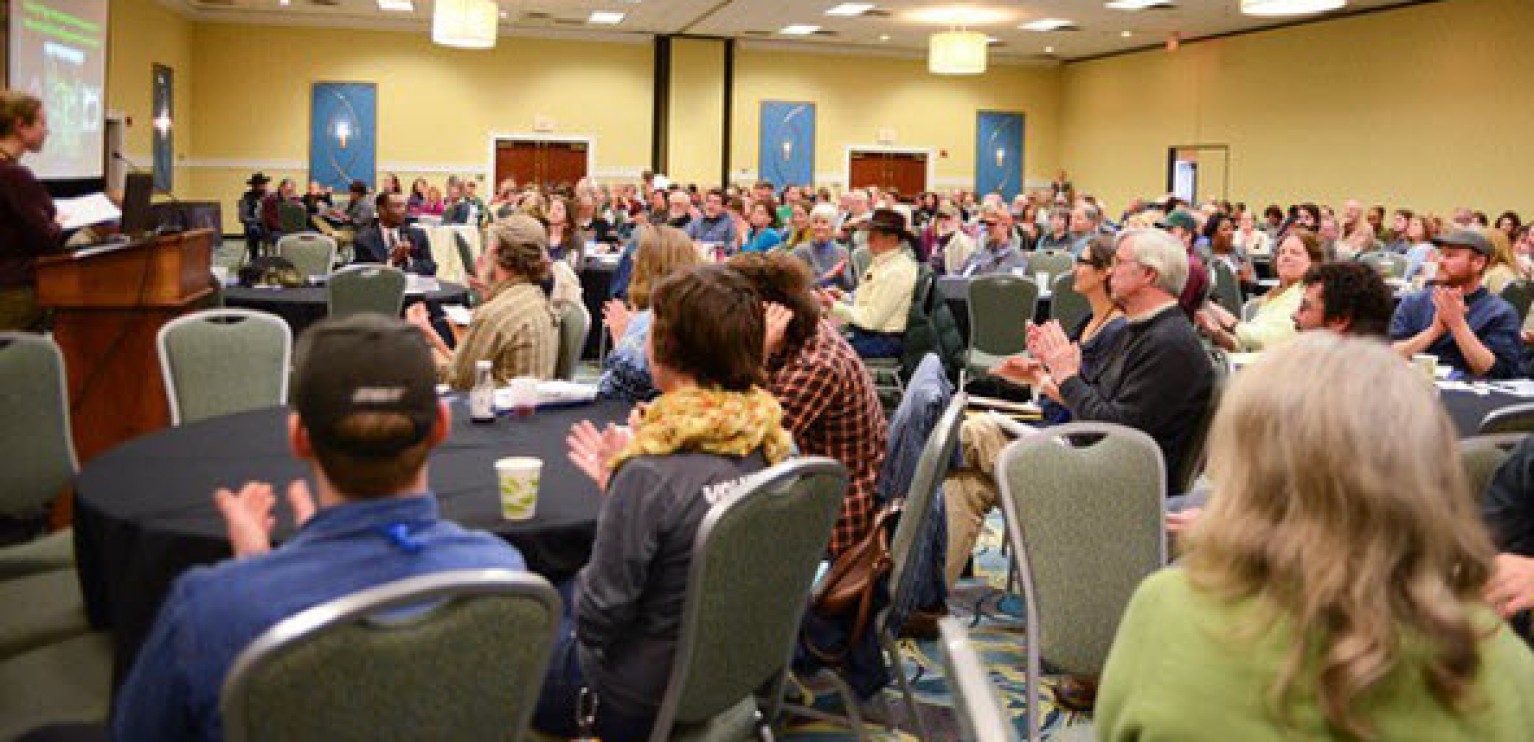Conservation Stewardship Program
By Mark Schonbeck
2016 Conservation Stewardship Program
Now with vital new features for small, diversified, sustainable farms
Deadline for initial sign up – March 31 – contact your district NRCS office today to start the process
The USDA Natural Resources Conservation Service (NRCS) has just opened the 2016 signup period for the Conservation Stewardship Program or CSP. Although the anticipated thorough overhaul of the CSP has been postponed to 2017, this year’s program has one vitally important new feature: a minimum per-contract payment of $1,500 per year for all CSP-eligible producers. This is a major win for small diversified producers seeking to utilize and benefit from the CSP, and a change that the National Sustainable Agriculture Coalition has advocated for the past couple of years. We are most grateful to NRCS for taking this important step toward opening this program to a wider range of producers. So – if CSP did not seem worth it in past years, check it out again for this year! In addition to financial and technical support from NRCS to improve your conservation practices, participation in CSP can strengthen marketing of your farm products as ecologically produced.
In addition, the 2016 CSP offers a greater array of Conservation Enhancements for organic and sustainable producers, and for livestock producers undertaking improved grazing management practices. Many of these practices offer a high “environmental benefit score” – resulting in higher per-acre payments for your CSP contract. Note also that, even if you already rotate crops and use cover crops, increasing the level at which you do these practices (e.g., using a more diversified cover crop mix, choosing new cover crops for a key objective like breaking hardpan or fixing or cycling N; or tightening your rotation to further minimize or eliminate bare soil fallow periods) can earn points for a “new practice”. Some examples of conservation activities rewarded and supported under CSP include:
Soil Health Crop Rotation
Adopting or improving a resource conserving crop rotation
Intensive Cover cropping in annual crops
Cover cropping in orchards, vineyards, and other woody perennial crops
Use of cover crops to fix N, scavenge N from the soil profile, or relieve compaction (deep rooted)
Use of cover crop mixtures
Conversion of cropland to grass-based agriculture
Intensive rotational grazing
Monitoring pasture health using pasture condition scores
Rotation of supplement and feeding areas.
Initial signup (deadline March 31) consists of a few relatively easy steps:
1 – Complete a simple 3-page NRCS application program used for all USDA conservation programs.
2 – If you do not already have a Farm Record Number, obtain one through your local Farm Services Agency (FSA) before you fill out the NRCS application.
3 – If you are applying as a business entity rather than as an individual, you will also need a Data Universal Numbering System (DUNS) number, and a current registration for the System for Award Management (SAM) before proceeding with a CSP contract application These can be done on line – see attached pdf file for details.
The process of selecting your suite of conservation activities and completing the terms of your contract with USDA NRCS can be completed within a few weeks after your initial signup.
Other CSP news this year:
If you have a 2012 contract that is expiring this year, you can renew, with the same deadline for signup as for new contracts.
This year, Congress did not cut the CSP, so NRCS will be able to sign up a full 10 million acres this year (compared to just 7 million last year) – so the window of opportunity for all farmers is wider this year.
Your participation in CSP can help us all make this a stronger and better program for all producers, and especially for diversified, small to mid scale, organic and sustainable farmers. The more of our farming sector that engages in this program, the greater our capacity to steer the 2017 overhaul in a direction that will markedly enhance program support for sustainable agriculture and family farming.
For more information, see attached pdf file, and also visit the receing NSAC blog on this year’s CSP, at http://sustainableagriculture.net/blog/csp-2016-signup/. Another helpful resource from NSAC is the Farmers’ Guide to CSP, available at http://sustainableagriculture.net/wp-content/uploads/2015/02/CSP-Farmers-Guide-2015-final.p |
